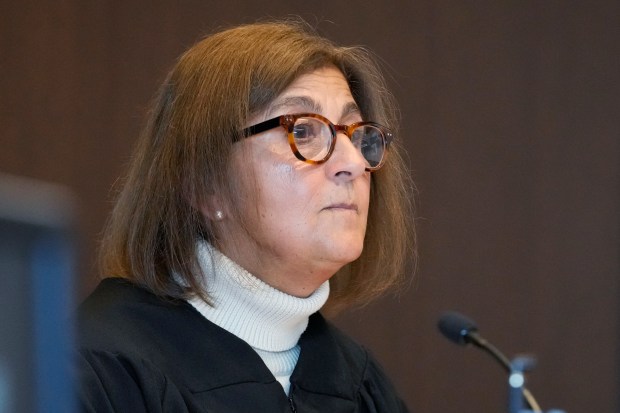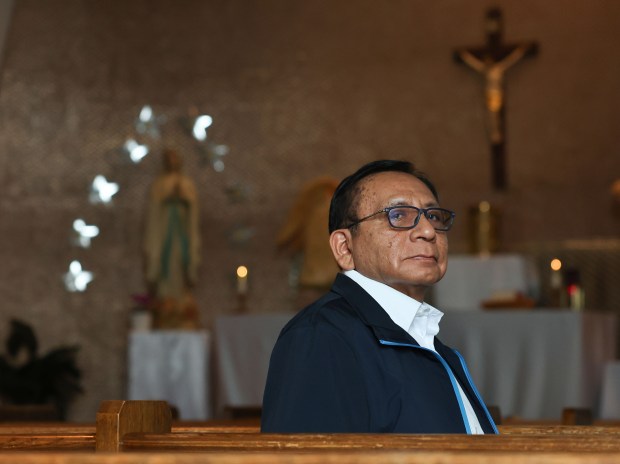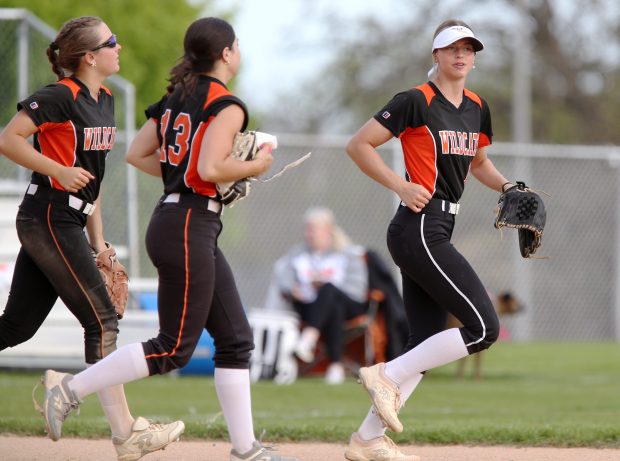The doctor will never forget the horror he witnessed during the 2022 Highland Park Independence Day parade mass shooting.
As gunshots rained down and throngs of terrified parade-goers ran in all directions, Dr. David Baum rushed to render aid. A couple were lying in a pool of blood. Family members frantically scooped up critically injured loved ones, carrying them away. The back of one man’s head was blown off; his son was by his side, screaming into the crowd “help him” over and over again, recalled Baum, who was attending the parade.
“I saw the kind of wounds that people only describe as wounds seen in war,” he said.
The Highland Park obstetrician doesn’t know if there can be any justice after such a heinous act, which left seven dead, four dozen injured and an entire community terrorized and upended.
But Baum said he still longs to see the shooter held accountable by the law and locked up for life.
“For those people who died and their families…they need it far more than me,” he added.
More than two years after that horrific holiday, the suspect’s trial is scheduled to begin with jury selection Monday at the Lake County Courthouse. Alleged gunman Robert Crimo III faces more than 100 charges, including 21 counts of first-degree murder — three for each person who lost their life while attending the parade. If convicted of first-degree murder, he could be sentenced to life in prison without parole.
The trial is expected to be a particularly emotional one: Lake County prosecutors have said they intend to call as witnesses many of the 48 people who were wounded on July 4, 2022, when authorities say Crimo fired an AR-15-style assault rifle from a rooftop at the crowd along the parade route below.
Judge Victoria Rossetti ruled Thursday that victim witnesses can be in the courtroom during the trial, agreeing with prosecutors that their testimony wouldn’t be materially affected by hearing the testimony of others.
Prosecutors said earlier this month that victims will not testify that 24-year-old Crimo was the shooter — their testimony will center only on their experiences during the shooting and its aftermath.
Authorities have said Crimo, who is being held without bail, confessed to the shooting after he was apprehended; Rossetti has ruled that the videotaped confession is admissible in court.
Crimo’s attorney declined a Tribune request for comment on the approaching trial.
The legal proceedings have already been harrowing for so many victims, their families and shooting witnesses as well as the broader community of Highland Park, a North Shore suburb of more than 30,000 residents that’s still grappling to heal from that traumatic day.
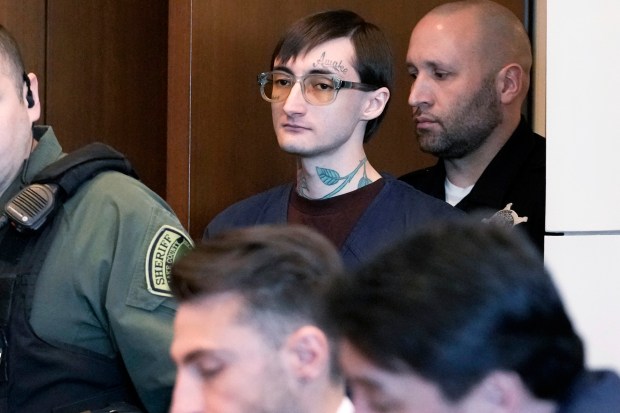
Over the summer, Crimo refused a guilty plea worked out by his lawyers, stunning the many victims and their family members who had gathered in a packed Waukegan courtroom expecting to hear him accept responsibility.
One woman whose mother was killed in the attack had said she and others came to that hearing “in hopes that we could put this out of our minds.”
“We have the Fourth of July coming up and it will be two years,” she told the Tribune at the time. “And all I wanted was to be able to fully grieve my mom without the looming trial, knowing that he was going to spend the rest of his life in jail.”
In 2023, Crimo’s father, Robert Crimo Jr., pleaded guilty to reckless conduct for signing the affidavit that allowed his then-underage son to get a state firearm owner’s identification card. When pleading guilty, Crimo Jr. agreed that he knew of his son’s dangerous behavior before signing the paperwork.
It was considered a rare case nationwide where a parent was held accountable for the alleged crimes of a mass shooting suspect. Crimo Jr. was sentenced to 60 days in jail, 100 hours of community service and two years of probation.
The day he reported for his jail sentence, Crimo Jr. arrived at the Lake County Courthouse wearing a white T-shirt emblazoned with the words “I’m a political pawn.” The back of the shirt read “laws,” “facts” and “reality.”
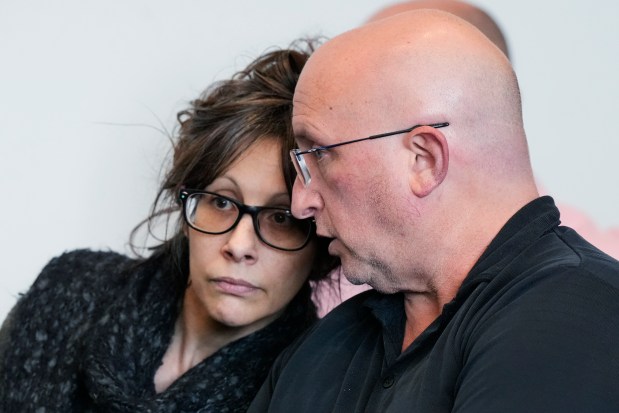
In late 2023, the father was released from jail early “for good behavior” after serving less than a month, according to Lake County sheriff’s officials.
The punishment outraged Baum, who called the jail time served “a joke” and added that the father’s actions were “inexcusable.”
“I’ll never feel comfortable that the father was never properly punished,” he said. “To me, that was the injustice. We’ll see what happens with (Robert Crimo III) … Getting justice in this country has become difficult.”
Emotions of a trial
Joe Leslie was sitting on a bench watching the parade with his wife and two daughters, ages 4 and 2, when the shots rang out roughly 300 feet away.
Almost on instinct, his wife grabbed their 2-year-old and Leslie took the hand of their 4-year-old. The parents ran in the same general direction but different locations to take cover.
His wife and toddler ducked under a nearby hedge. He and his older daughter took shelter with 30 or so other terrified parade attendees in a nearby Starbucks bathroom; he told his daughter they were playing a game of hide-and-go-seek to keep her calm.
One of the 2-year-old’s little pink shoes fell off and was left behind.
“It was just absolute panic,” Leslie recalled.
The Highland Park resident said he’s frustrated that court proceedings have “dragged on this long.”
“It’s been so prolonged and protracted,” he said. “No one is going to forget this, who was involved in this. But to kind of move on psychologically… I don’t think that’s been possible with this sort of hanging over people as long as it has been.”
A trial for such a high-profile and horrendous crime can be deeply emotional in so many ways, said Susan Bandes, emeritus professor of law at DePaul University College of Law.
“Of course it’s going to be excruciating for the victims, for the family of victims, really the people of Highland Park and the greater community to, in a sense, relive this,” she said. “There will be visual reminders as well as testimony.”
Sometimes victims approach a trial anticipating they’ll find some form of closure after it’s over, which can be a dangerous assumption, said Bandes, author of the book “The Passions of Law.”
“People might believe that the trial can help them heal and that the trial can help them close the book,” she said. “But of course, if you’ve lost somebody or you’re deeply injured, you’re not really going to close the book.”
In other instances, survivors might hope to find answers from the facial expressions or the demeanor of the suspect during court proceedings, Bandes said.
Media reports have said Crimo was “staring down” victims in court, which he has denied.
“I’m hoping that people won’t go in expecting to find some answers in the eyes of the defendant, for example,” Bandes said. “You may never get that. And you may get something you want a whole lot less.”
A famous example was when Timothy McVeigh was executed and people who had lost children and other loved ones in the 1995 Oklahoma City bombing went to watch the execution, Bandes noted.
“Many of them felt very traumatized because they saw nothing in his eyes,” she said. “They expected, somehow, to see something that would help them.”
Bandes urged survivors and the families of victims to prepare themselves by having “realistic expectations” going into the trial. Society typically has a deep-seated need to hold someone accountable for unleashing this kind of devastation, which tore at the fabric of the Highland Park community, she said.
“And that’s the kind of need the criminal justice system is set up to address, to try to give people a sense that this will not go unnoticed,” Bandes said. “This will not go unpunished.”
There’s also hope that a conviction and sentencing will deter similar crimes, she added.
“So a trial and a sentence, where appropriate, is meant to serve those needs,” she said. “But what worries me — and you saw this happening at the guilty plea hearing as well — people go to court and they expect to get some emotional closure that they probably are not going to get. I think it’s a false promise that can end up victimizing them all over again.”
The day after the shooting, Leslie returned to the scene to retrieve the shoe his younger daughter lost when fleeing. He found it on the ground by the hedge where his wife took cover, near a full cup of coffee she had purchased just before dropping it at the sound of gunfire.
By then, the landscape was laced with yellow crime scene barricade tape; less than 24 hours earlier, everyone had been enjoying the holiday and parade, he recalled.
“It just seemed absolutely surreal,” he said. “Just knowing that people’s lives had been changed forever by that day.”
Leslie said he’s grateful the trial is starting, although “closure” might not be the right label for the emotion he’s seeking.
“That will give people at least some satisfaction, if that’s the right word, that there could be some justice,” he said. “Grief is a gradual thing, stage by stage you kind of live with it and life sort of goes on. But it kind of feels like that process has been denied. Because for three years, there hasn’t been a resolution.”
‘I’m not the same’
Shane Selig, who volunteered to help manage the parade, returned home from the shooting covered in blood.
At one point, he was rendering aid to three victims at the same time: One person had a gunshot wound to the leg, another had been shot in the chest and the third suffered an injury that proved fatal.
“It was just a catastrophic scene. I had no concept of time,” recalled Selig, a software engineering manager trained in emergency response. “I was just trying to tackle things that were straight in front of me.”
While he’s “confident that justice will be served,” Selig said he’s not very focused on the trial.
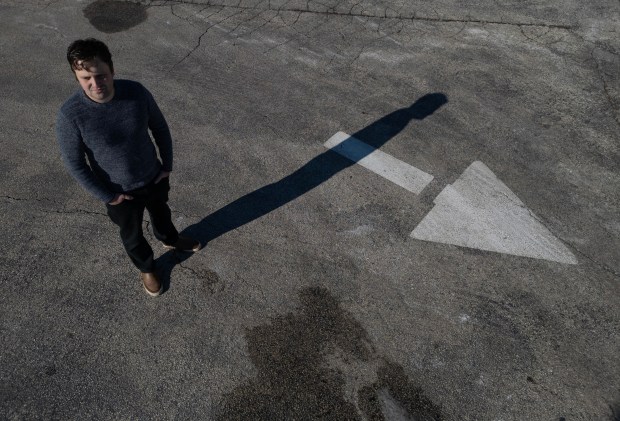
“I know of many people in our community that need the trial to close that chapter and want to feel that kind of technical validation of justice,” he said. “To me, I know the intent of our justice system is rehabilitation or public safety. To me, when I look realistically and practically, a guilty verdict doesn’t affect my life at all.”
Selig said he’s more concerned with stopping this kind of violence from recurring.
“The threat of weapons continues to be ever-present,” he said, adding that he also advocates for mental health investments and early-intervention strategies to prevent mass shootings.
Many Highland Park residents expressed frustration that gun violence and mass shootings have continued to plague the nation, with few solutions emerging.
“The only thing that would give me comfort, at this point, would be a nationwide ban on assault weapons. That’s the only thing that would make me feel better,” said Debra Baum, wife of the obstetrician who aided victims. “I’d like for us as a nation to learn something after these tragedies. Yet it seems like we haven’t. And just to think that other families are going to go through what this community has gone through, is just a very sad state of affairs.”
She applauded Illinois for passing the Protect Illinois Communities Act, which bans the sale and distribution of certain high-powered guns and high-capacity magazines; the measure was signed into law by Gov. JB Pritzker in the wake of the parade shooting, though it still faces legal challenges.
Kristen Carlson fled the shooting with about 15 to 20 other parade attendees to shelter in the backyard of her mother’s home in Highland Park. For months afterward, the sound of sirens or a whir of a helicopter were triggering; she would tense up and feel anxious, though those responses dissipated with time and therapy, she said.
Part of her wants to avoid news of the trial because “I don’t want to keep reliving that day,” she said.
“Of course I want justice. I don’t think anyone should be allowed to get away with taking anyone else’s life and terrifying all those people who will never be the same, even if they weren’t physically hurt,” she said. “The people who had to see that will never be the same. I didn’t even see it, but I saw the horror on people’s faces. And I’m not the same.”
Carlson said she’s still trying to process the terror of that day’s violence. Yet she’s also overwhelmed by how many strangers rendered aid, cared for the vulnerable or offered a safe place for others to hide.
“There was only one person that day with evil in his heart,” she said. “There were hundreds of people who stood up for their fellow man and protected people that they didn’t even know. It can be true that we saw evil that day. And it can be true that we saw good.”
eleventis@chicagotribune.com


